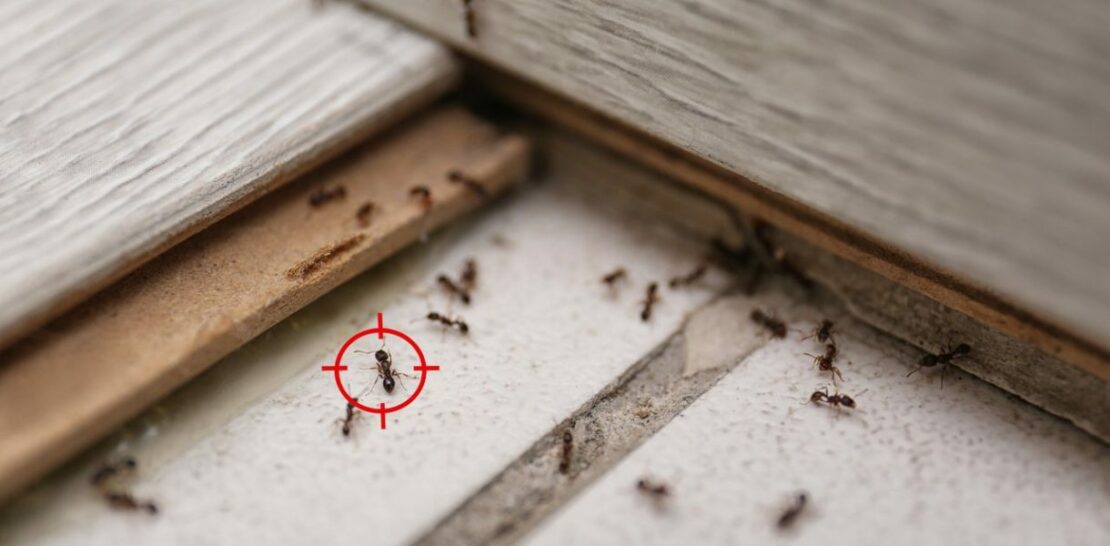Ant invasions are an unwelcome, yet common occurrence in many households.
These tiny insects, although essential to our ecosystem, can become a nuisance when they venture into our living spaces.
They are relentless in their pursuit of food and water, making your home a prime target for their foraging.
In addition to being an annoyance, ants can also contaminate food and cause structural damage to buildings.
While it may seem challenging to keep these persistent creatures at bay, there are several natural and effective methods that can help you maintain an ant-free home.
In this comprehensive article, we will discuss seven remarkable tips that will assist you in outsmarting ants using natural solutions.
Tip 1: Identify and Eliminate Food Sources
The first step in preventing an ant infestation is to identify and eliminate any potential food sources in your home. Ants are attracted to various types of food, including sweets, proteins, and carbohydrates.
- Store food in airtight containers: Ensure that all food items are stored in airtight containers, and avoid leaving open packages on countertops or in cabinets. This will not only keep ants at bay but also preserve the freshness of your food.
- Maintain cleanliness: Regularly clean countertops, floors, and appliances to remove any food particles, spills, or residues that may attract ants. Wipe down surfaces with a vinegar-based solution, which will not only clean but also act as a natural deterrent for ants.
- Dispose of garbage: Empty your garbage cans frequently and ensure that they are tightly sealed to prevent ants from accessing any food waste. Additionally, keep outdoor garbage cans at a distance from your home to further minimize the chances of attracting ants indoors.
- Be mindful of pet food: If you have pets, consider feeding them on a set schedule, and promptly remove any leftover food. Store pet food in airtight containers and clean pet feeding areas daily to prevent ants from being attracted to the area.
Tip 2: Remove Water Sources
Ants, like all living creatures, require water to survive. Eliminating excess moisture and water sources in your home can significantly reduce the likelihood of an ant invasion.
- Fix leaks: Inspect your home for any water leaks, particularly in the kitchen and bathroom, and promptly repair any issues you find. This includes dripping taps, leaking pipes, and faulty appliances.
- Remove standing water: Ensure that there is no standing water in or around your home, as this can attract ants and other pests. This includes pet water dishes, plant saucers, and puddles on your property.
- Improve ventilation: Proper ventilation can help reduce excess moisture in your home. Install exhaust fans in high-moisture areas such as the kitchen and bathroom, and consider using a dehumidifier in damp spaces like basements or crawlspaces.
Tip 3: Seal Entry Points
Preventing ants from entering your home is crucial in maintaining an ant-free environment. Conduct a thorough inspection of your property, both indoors and outdoors, to identify any potential entry points for ants.
- Seal cracks and gaps: Use a silicone-based caulk or sealant to fill any cracks or gaps in your home’s foundation, walls, windows, and doors. Remember that ants are tiny and can fit through even the smallest of openings.
- Install weatherstripping: Apply weatherstripping to your doors and windows to create a tight seal, preventing ants and other pests from entering your home. This will also help improve the energy efficiency of your home by reducing drafts.
- Inspect utility lines: Check any utility lines (e.g., electrical, telephone, and cable) that enter your home and ensure that they are properly sealed. If necessary, apply caulk or expandable foam to fill any gaps surrounding the lines.
Tip 4: Employ Natural Repellents
Natural repellents offer an environmentally-friendly and non-toxic way to deter ants from entering your home. There are several natural substances that are known to be effective in repelling ants, including:
- Essential oils: Ants are known tobe repelled by certain essential oils, such as peppermint, eucalyptus, and lemon. Create a simple spray by mixing a few drops of your chosen essential oil with water in a spray bottle. Apply the solution to entry points, countertops, and other areas frequented by ants.
- Vinegar: As mentioned earlier, vinegar is not only an effective cleaning agent but also a natural ant deterrent. Mix equal parts of white vinegar and water in a spray bottle and use it to clean surfaces and repel ants.
- Citrus peels: The strong scent of citrus peels, such as lemon, orange, and grapefruit, can effectively repel ants. Scatter the peels near entry points or areas where ant activity is prevalent. Replace the peels regularly to maintain their effectiveness.
- Spices and herbs: Ants are deterred by the strong aromas of certain spices and herbs, including cinnamon, cayenne pepper, and bay leaves. Sprinkle these substances near entry points or in areas where ants are commonly found.
Tip 5: Use Natural Ant Bait
While repellents can help prevent ants from entering your home, natural ant bait can be used to eliminate existing colonies. These baits attract ants with a food source, laced with a slow-acting natural toxin that is carried back to the nest, eventually eliminating the entire colony. Some natural ingredients that can be used to create ant bait include:
- Borax: Mix equal parts of borax and sugar or honey to create a simple, yet effective ant bait. Place the bait in small containers, such as bottle caps or jar lids, and place them near ant trails or areas of high activity. Keep in mind that borax can be harmful to pets and children, so use caution when placing bait in accessible areas.
- Diatomaceous earth: This naturally occurring substance consists of the fossilized remains of tiny aquatic organisms called diatoms. Diatomaceous earth damages the exoskeleton of ants and other insects, eventually causing dehydration and death. Sprinkle a thin layer of food-grade diatomaceous earth along ant trails or around the perimeter of your home.
- Cornmeal: Ants are attracted to cornmeal, but they are unable to digest it, leading to their demise. Place small piles of cornmeal near ant trails or areas where ants are present. This method may take some time to be effective but is a safe option for households with pets and children.
Tip 6: Employ Biological Control Methods
Another effective way to keep ants at bay is by employing biological control methods. These include introducing natural predators of ants into your environment and encouraging the growth of plants that deter ants. Some options include:
- Nematodes: These microscopic worms are natural predators of ants and can be used to control ant populations in your yard. Purchase beneficial nematodes from a garden center or online, and follow the instructions for application.
- Beneficial insects: Encourage the presence of insects that prey on ants, such as ladybugs, lacewings, and parasitic wasps, by planting flowers and shrubs that attract them. You can also purchase these beneficial insects from garden centers or online.
- Ant-repellent plants: Planting ant-repellent plants around your home can help deter ants from entering. Some examples of plants that are known to repel ants include lavender, marigolds, and mint. Be sure to research the specific growing requirements of each plant to ensure its success in your garden.
Tip 7: Maintain a Regular Cleaning Routine
Maintaining a regular cleaning routine is crucial in preventing ants from being attracted to your home. By keeping your living spaces clean and free of food debris, you can significantly reduce the likelihood of an ant invasion. Consider implementing the following practices:
- Daily cleaning: Develop a daily cleaning routine that includes wiping down countertops, sweeping floors, and cleaning up any spills or food residues immediately.
- Weekly deep cleaning: Dedicate time each week to thoroughly clean your kitchen, bathroom, and other areas with potential food and water sources. This includes cleaning appliances, disinfecting garbage cans, and clearing any clutter that may provide hiding spaces for ants.
- Seasonal maintenance: Atleast once a year, perform a thorough inspection of your home for any potential entry points, leaks, or other issues that may attract ants. Address any problems promptly to prevent future infestations.
In conclusion, keeping your home ant-free may seem like a daunting task, but with determination, patience, and the implementation of these seven natural and effective tips, you can successfully outsmart these persistent insects. By identifying and eliminating food and water sources, sealing entry points, employing natural repellents and baits, utilizing biological control methods, and maintaining a regular cleaning routine, you can enjoy a comfortable, ant-free home. Remember that consistency is key in maintaining an ant-free environment, and often, a combination of these strategies will yield the best results. So, take action now and reclaim your home from these unwelcome invaders!




